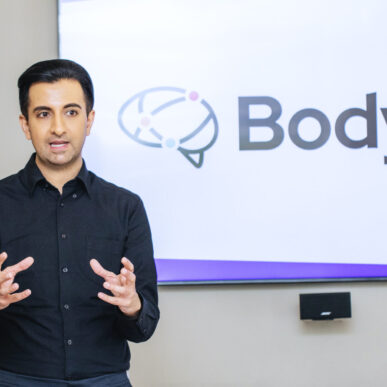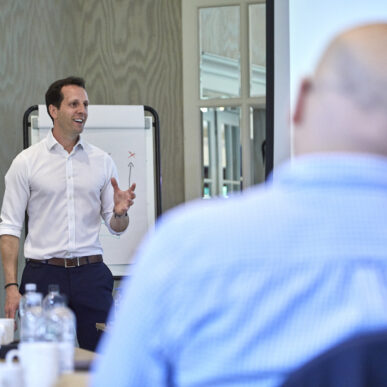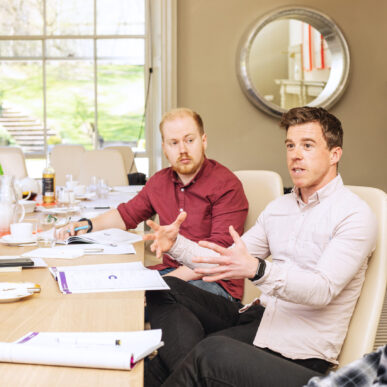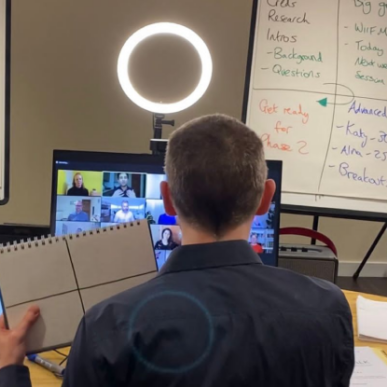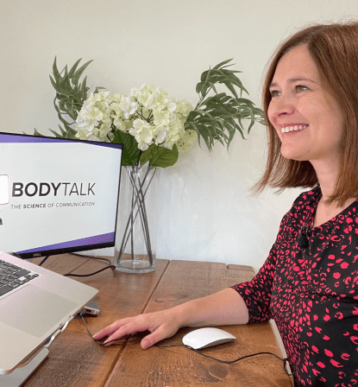The Positive Effect Presentation Skills Training Has On Your Confidence
Have you ever considered the benefits of presentation skills training?
Let’s put this a different way: How would you feel if you were asked to stand up and present something to your colleagues or clients right now?
Most people feel some sense of unease, whether that’s a slight nervousness or crippling trepidation. In fact, some estimates suggest that three quarters of people experience a fear of public speaking.
You may be worried about forgetting information or ‘losing your way’. Perhaps you feel uncomfortable in the spotlight and don’t like to make eye contact. Maybe you fear being challenged on the information that you are sharing. For a lot of us, we are generally worried about ‘looking stupid’.
Feeling a little nervous before a presentation is completely normal. However, if we go into presenting with a negative mindset of fear and doubt, this can hamper our performance.
Presentation skills training can help you to develop skills that will make you feel much more confident when presenting in front of any audience. It will ensure that you share your message with clarity and impact so that your audience is engaged throughout.
Types of Presentations and the Differences in Style
Many of the most successful public speakers have engaged in presentation skills training to help them hone their art.
You don’t have to be planning to speak at a huge conference to benefit from presentation skills training. This type of coaching has tangible benefits for people at any stage of their career. This could include presenting for pitches, client presentations, one-to-one meetings or simply a regular team update.
If you’re going to be sharing ideas, presentation skills training can help you to do by becoming more organised and confident about the information you’re sharing and by getting to really understand the needs of your audience.
Here are some popular types of presentation skills training:
Presentation training for conferences
Speaking at a conference is a fantastic opportunity to share your company’s ideas and values, promote your brand and gain new business.
It’s also likely to be one of the biggest audiences you will face as a speaker.
Understandable, then, that the prospect of speaking in front of a conference audience can strike fear into the hearts of even the most comfortable of presenters.
Presentation skills training for conferences can help you to plan an inspiring speech that will engage your audience throughout and motivate them to act on your ideas. This type of training can include tips on body language, including how to stand, gesture and move around a stage with gravitas.
As well as body language training, voice training can also benefit conference speakers. A coach can work with you to help give you command and control over the pitch and pace of your delivery, as well as using other vocal elements to punctuate your story.
Conference training can also help you to ensure you’re telling your story effectively for the audience to really make it compelling for your audience.
Presentation training for pitches
A successful pitch is one in which you are able to persuade an audience to buy into your idea. But the best pitches aren’t won on the strength of ideas alone – the way you deliver them can make a huge difference to whether you win or lose that bid.
Training can help you to craft a persuasive pitch that will appeal to your audience. It will help you to focus on their challenges and goals, as well as ensuring your delivery is strong, confident and persuasive.
Training for client presentations
Just like for pitches, presentation skills training can help you deliver better client presentations.
Working with a coach will allow you to structure your information in a way that will really engage your client, as well as helping to anticipate any pushback or difficult questions that might arise. This type of presentation skills training will give you more confidence when speaking to clients and ultimately help to improve your working relationships.
Peer to peer presentation training
Even if you’re only likely to be presenting internally to your peers, presentation skills training can really help. Not only will you learn to share your views confidently and concisely, but you’ll also become a better listener, making meetings more productive.
It can also help you to choose the right technical detail to share in team meetings. This will mean that people can follow you easily without becoming overwhelmed by unnecessary information.
Presentation Preparations: What You Need To Know
Whether you’re presenting in front of thousands or just one-to-one, professional training sessions will help equip you with the tools you need to do so with confidence.
This includes coaching on the steps you need to take in advance to prepare a powerful presentation, such as:
Presentation materials
Are you planning to use visual aids in your presentation? If so, make sure you take ample time to prepare them. Ensure that any slides you use are there to help your audience understand, and not simply a reminder of your script! Strip out any unnecessary text and use compelling images wherever possible.
Virtual connection checks
Technology failing can be a huge cause of stress when it comes to presenting. But creating an impact virtually goes much further than simply hoping the connection won’t fail.
Take time before your presentation to check your virtual setup is as professional as you can make it. Check the height of your camera, your sound and lighting. If you are going to be sharing slides, make sure you know how to bring them up, so that when you come to present you can do so flawlessly and give your audience a great experience.
Rehearsing before the big day
The most successful presenters devote a lot of time to rehearsing in advance of an event. Working with a communication coach can help you to rehearse exactly what you are going to say and how you are going to deliver it.
Getting used to how you sound speaking out loud will increase your confidence. Rehearsing can help to avoid the dreaded ‘filler words’. You’ll also be able to uncover any parts of your presentation that don’t flow well or are complicated to explain, which will give you a chance to rewrite or practise further.
Breathing techniques
If you feel nervous before a presentation, breathing techniques can help. There are many variations of breathing techniques available online, but one particularly effective technique is 5-5-5-2 breathing. This will help to calm you down and reduce stress hormones.
A presentation skills coach will be able to identify your nerves and share breathing techniques that work for you, whether you’re planning or about to take your first steps on stage.
Delivery & projection
A good presentation takes audiences on a journey. This journey is in part through the content, but also in how you deliver it. Use of your voice, varying your pitch and pace and pausing for emphasis can all help to create a much more compelling presentation.
Projection, or having power and energy in your voice, can only be achieved when practising out loud.
Preparing for Q&A
The thought of answering questions can be intimidating. But taking the time to think about the sort of questions you’ll face can be enormously beneficial.
What pushbacks might your audience have? Which parts of your ideas or content may need extra clarification? How might people feel about the information you’re sharing?
Working with a presentation skills coach can help you handle questions with ease, giving you valuable thinking time and ensuring that you treat any objections with empathy and a genuine desire to understand the other person’s concerns. When you prepare well for questions, you’ll manage much more confidently when they happen.
Transferable Presentation Skills
Presentation skills training can benefit you throughout your career. Even if you are receiving training for one specific event, the skills and techniques that you will learn will help you to improve your communication skills and confidence levels in all aspects of your life.
You’ll be able to understand audiences’ needs more and articulate your own ideas carefully and confidently. The body language and voice skills that you will learn will be as useful ordering at a bar as they are in a board room!
In short, presentation training isn’t just for one event: it’s something that will help you on a daily basis.
If you would like to learn more about presentation skills training for you or your team, get in touch with us today.







